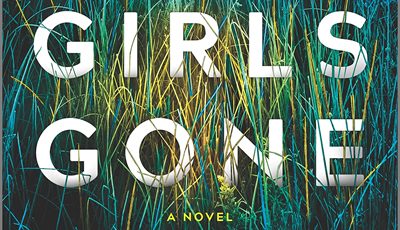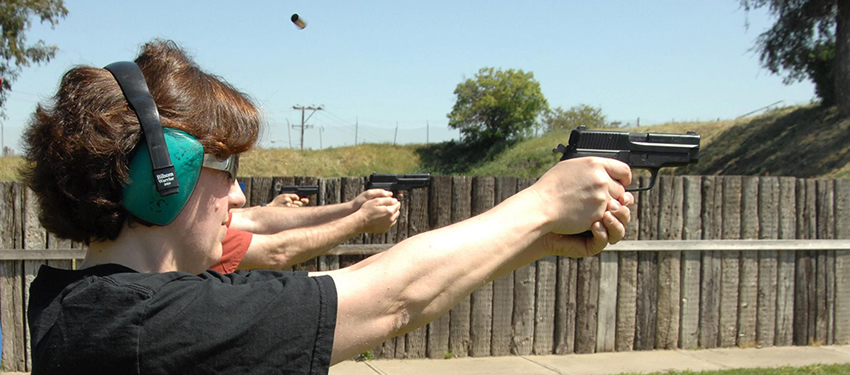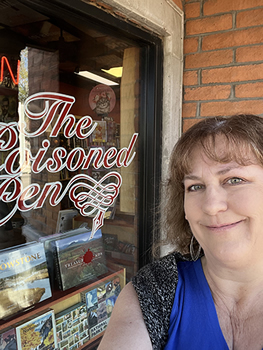

Features Up Close: Allison Brennan
The Most Dangerous Predators in the Bayou, Gators or Humans?
 By K.L. Romo
By K.L. Romo
Bestselling author Allison Brennan’s love of research and interest in true crime cold cases led her to study the Louisiana bayou and the murders of the Jeff Davis 8. Eight women disappeared in Jefferson Davis Parish between 2005 and 2009, and the case remains unsolved.
In SEVEN GIRLS GONE, (book four in the Quinn & Costa series), Brennan highlights the small-town insular attitudes and distrust of outsiders, the justice never delivered to the families of the murdered prostitutes, rampant drug addiction, and law enforcement cover-ups.
Detective Beau Hebert of the St. Augustine, Louisiana police force responds to the call about a murder at the Magnolia Inn—Broussard Parish’s biggest provider of prostitution, violence, and drugs for decades. When a string of fatalities follows behind him, Hebert suspects their corrupt city officials and police force might be covering up the crimes. He enlists the help of his Navy-buddy-turned-FBI-Special Agent, Michael Harris, along with Special Agent in Charge Matt Costa, Detective Kara Quinn, and the rest of the FBI Mobile Response Team.
Can they uncover the corruption and get justice for the murdered women before more people end up dead?
Here, Brennan talks with The Big Thrill about her love of true crime, justice for the families of victims, and the plagues of desperation and drug addiction.
How did the unsolved true crime cold case about the Jeff Davis 8 inspire the novel?
I read In Cold Blood by Truman Capote when I was 13 and have loved true crime ever since. When I learned about the Jeff Davis 8 case in Louisiana, I read everything I could find on it, including the book Murder in the Bayou by Ethan Brown. Two things stuck out for me: first, the sense that many people knew what happened, but no one wanted to talk about it, and second, that the victims—both the most vulnerable and those more predatory—had friends and family. I wanted to both solve the crimes and tell the stories of survivors.
While the real-life and fictional set-up is the same (the murders of prostitutes in the bayou), the story focuses on saving those in jeopardy, and my characters don’t stop until they have answers. I think most of us who read crime thrillers want justice for the victims, closure for the survivors, and punishment for the perpetrators.
Is there an FBI Mobile Response Team (MRT) in real life?
Yes, and no. In real life, the FBI has Evidence Response Teams (ERTs) in most field offices. These are teams that, like my MRT, are comprised of specially trained agents with unique skill sets, brought together to investigate complex or unusual cases within their jurisdiction.
I learned about these teams when I took part in the FBI Citizens Academy in Sacramento, and the team leader spoke to us about the Yosemite murders and how the ERT responded. I was fascinated by the unit, which gave me my initial idea for a Mobile Response Team that operated like the ERT, but on a national level, focusing on rural areas that don’t have a large police force and lack resources to investigate complex cases.
How did you research the Louisiana bayou, and are you scared of alligators, like your character, Kara?
My best friend lives in New Orleans and was born outside Baton Rouge, so I interviewed her for many of the details. My grandfather is from Alabama, so I’m familiar with the South, as I traveled there a lot as a kid. While much has changed, small town life is still small town life, and I was comfortable writing about the community of St. Augustine (which is a fictional town). What I didn’t know, I looked up—statistics about drug use, the economy, and the behavior of alligators. I’m scared of any animal who can kill me, so it was easy for me to write Kara!
Is there a message you’d like readers to take away from the story?
I don’t like to be preachy in my books, but I would like people who read this book to recognize two things: first, drugs kill. It doesn’t matter if you use or deal, you’re putting your life at risk and will die young.
Second, while I don’t condone the behavior of many people in this story, I can see too easily how desperate people can make bad decisions, often feeling like they don’t have a choice at all. I hope readers understand the complexity of how people get caught up in these circumstances, and that having compassion for someone doesn’t mean you have to condone their behavior or their choices.
Can you share a teaser about your next novel?
Next book? LOL—I have three books coming out in the next year. {Editor’s note: Brennan writes three books every year!} North of Nowhere is my first full-length standalone thriller, about two teenagers on the run from their criminal father—and others—in the Montana wilderness during a blizzard. It’ll be out in August 2023. The next Quinn and Costa book, The Missing Witness, will release in January 2024, and the first book in a new PI series, The Prodigal Daughter, will be out in May 2024. I like to keep busy!
- The Big Thrill Recommends: ONE BIG HAPPY FAMILY by Jamie Day - September 16, 2024
- The Big Thrill Recommends: ONLY ONE SURVIVES (Video) by Hannah Mary McKinnon - July 30, 2024
- The Big Thrill Recommends: WHAT YOU LEAVE BEHIND by Wanda M. Morris - June 27, 2024



